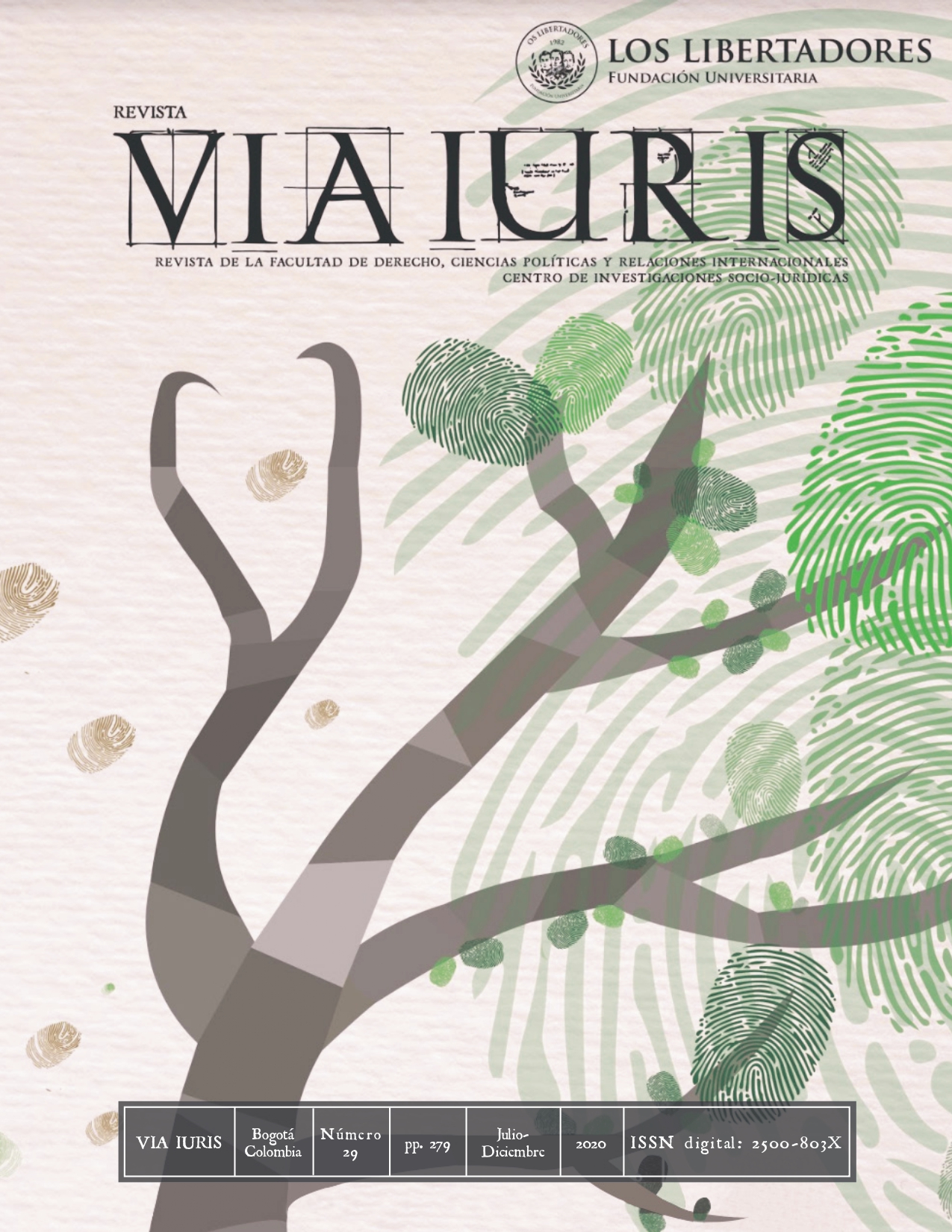Approach to the legal treatment of lethal violence against trans women in Colombia: From femicide to transfemicide
DOI:
https://doi.org/10.37511/viaiuris.n29a3Keywords:
Violence; gender; transgender; human rights; femicide; transfemicide.Abstract
This paper approaches the legal approach that has been given in Colombia to lethal violence based on gender identity, which has been typified as femicide (Rosa Elvira Cely Law) and which, given its specificity, could be investigated and punished as transfeminicide. Given the awareness reached in the field of human rights about the serious situation faced by transgender women in Latin America, specifically in countries such as Colombia, important LGBT organizations have fought for the proper prosecution of crimes perpetrated on the basis of gender identity. Unlike Mexico and Argentina, in Colombia a broad interpretation of the autonomous criminal type “femicide” has been made to apply to cases of murders of transgender women, posing great challenges for its application by investigators and judicial operators. Exploring possible answers to the question of the need to “move” towards the creation of an autonomous criminal definition of transfeminicide, this research article offers an introduction that explores the socio-legal context of this problem in Colombia, followed by the methodology of the research carried out, the background of the investigation, a conceptual discussion in the light of feminist and transfeminist authors from a Latin American perspective, and the main findings on the progress, difficulties and challenges of the current legal approach to this phenomenon. This paper closes with some conclusions and recommendations for future research on the subject.
Downloads
Downloads
Published
Issue
Section
License

This work is licensed under a Licencia Creative Commons Atribución-NoComercial-














.png)
